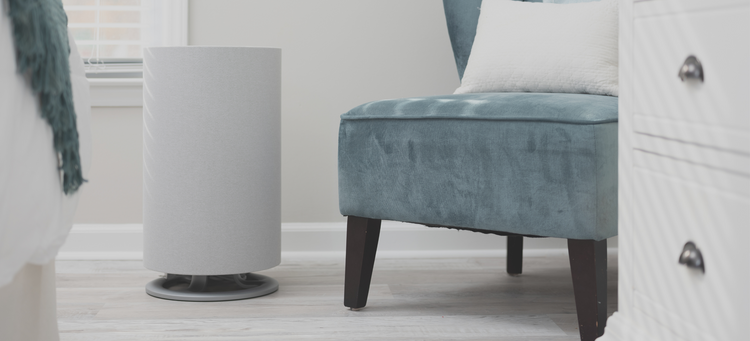Don’t Let These 10 Things Bum You Out This Summer
Summer is a time when we want to feel our best, both physically and mentally. It’s a season for fun vacations and outdoor activities like grilling out, concerts, and bonfires. We eagerly anticipate longer days, warmer weather, and a chance to soak up the sun’s rays with the arrival of summer.
From heatwaves and allergies to vacation planning and unexpected summer colds, there are several things lurking in the summer months that could ruin the fun. Here’s what to know so your summer isn’t a bummer!
1. Summer Allergies
We hate to break it to you, but allergies can be a year-long annoyance. It can even hit during the summer when you’re supposed to be at the pool or grilling out. The best things you can do for your summer sniffles are to clean indoor air, rinse your sinuses, and take over-the-counter medications if needed.
2. Smoke Inhalation
Smoke inhalation can increase in the summer even if you’re not a smoker. Wildfire season starts at the peak of summer in July and the smoke inhalation from dry foliage burned by fires can cause serious issues. If you don’t live in an area that normally gets wildfires you can still feel the respiratory effects of them, sometimes even states away. Smoke inhalation from sources like bonfires, smaller contained campfires, or even a grill can irritate the lungs as well. Avoiding smoke when you can is ideal, but not always possible. One easy method of making sure you breathe in clean air with an activated carbon air purifier is to control what you can indoors.
3. Heat-Induced Asthma
Everyone has different asthma triggers, but heat and exercise are common summer triggers that can lead to an asthma attack. Hot and humid air can worsen asthma symptoms. Exercising is another common trigger that can cause asthma attacks so it’s best to avoid exercising outside in the summer on especially hot and humid days. Stay indoors in clean, cool air when exercising in the summer.
4. Increased Driving Leads To Increased Air Pollution
Summer sees long road trips and daily trips to the beach or the pool, which unfortunately means more driving and more car emissions. Increased air pollution in the summer months affects both outdoor and indoor air. So, it’s even more important to do what you can to control pollution and your exposure to it. Carpooling, bicycling or walking when able, and of course controlling your indoor air at home so you breathe less air pollution, are all smart measures no matter the season.
5. UV Rays and Sunburns
UV rays and prolonged exposure that leads to sunburns are always a summer annoyance, but they’re dangerous and can lead to serious conditions like skin cancer. Make sure you don’t burn by wearing protective clothing, seeking shade, and applying sunscreen while outdoors. It’s essential during midday hours and if you’re by water, snow, or sand because UV rays reflect off these surfaces increasing chances of sunburns.

6. Irritant Inhalation
Summer brings endless fun outdoor events, but it also brings yard work that isn’t necessary for the winter. Chemicals used in lawn care products can produce fumes that can cause respiratory irritation and damage. Just like smoke inhalation, chemical inhalation can create respiratory issues. Avoiding inhaling irritants is ideal, but not always possible, so wearing a respirator when using harsh chemicals and running an air purifier to clean indoor air is essential.
7. Summer Respiratory Infections And Summer Colds
Summer respiratory infections and summer colds pop up just as frequently as summer allergies. You shouldn’t have to spend your summer sleeping the days away trying to get over endless illnesses. Staying hydrated, minimizing exposure to airborne allergens, and (yes, we have to mention it) cleaning your indoor air with air purifiers will help you avoid summer colds and infections.
8. Mold
Mold thrives in summer weather with increased humidity and moisture from storms. Any kind of standing water or moisture in the air is a breeding ground for mold spores to develop and wreak havoc. Mold causes problems both to your home and your respiratory system. Keeping your humidity levels in check with a dehumidifier and filtering out mold spores from your indoor air with an air purifier is essential.
9. Dehydration
Dehydration is a bigger risk in the summer months with hotter weather. Staying hydrated will help your health overall and, in particular, can help mitigate asthma symptoms. Dehydration is more of a risk in the summer, especially for those who exercise outside and have heat or exercise-induced asthma. Those with COPD are also at higher risk for dehydration. Remember, thirst is your body showing the initial signs of dehydration. So while you’re busy splashing in the water, remember to drink plenty of clean water too.
10. Heat Exhaustion And Heat Stroke
Heat exhaustion and heat stroke is another big risk that increases in the summer. Although anyone can be at risk for heat exhaustion or heat stroke, it’s a more common issue for individuals with respiratory problems like asthma or COPD. Those who have chronic illnesses, children, and the elderly are also more susceptible to extreme temperatures like those we get in the summer. There are several heat-related illnesses you should look out for during the summer, learn more about how to spot the symptoms from the CDC.
Summer is a fun season with lots of adventure and time outdoors. It can also mean a different set of considerations to keep in mind when wanting to keep healthy and safe. One thing you can always control is the air quality inside your home. When temperatures are soaring, wildfires are churning smoke into the air, and air quality warnings are hitting due to heat and air pollution outdoors, you can trust that inside is a safe haven of clean, cool air.







